‘Carpe diem’
Horace
March is the month when the snowdrop symphony reaches its crescendo. From the Pyrenees to the Caucasus; from the high mountains of southern Turkey to the Carpathians, populations of snowdrops are flowering simultaneously. It is impossible to be everywhere at once though, goodness knows, I frequently wake up these days not knowing for several minutes which country I’m in.
In the current era, Turkey is the epicentre of snowdrop diversity, though it is more likely that the genus has its origins in what is now the Caucasus. Snowdrops are far from ubiquitous in Turkey and seem to be absent altogether from the south east corner of the country but they are scattered throughout the mountains and coastal hills of the remainder of this vast land.
I planned a Turkish travel epic, between the 1st and 17th of March, trying to take in as many flowering snowdrop species as possible, returning to the UK for 24 hours in the middle, to attend my son’s tenth birthday party. This involved taking 13 flights and hiring five separate vehicles. There was no room for any mistakes.
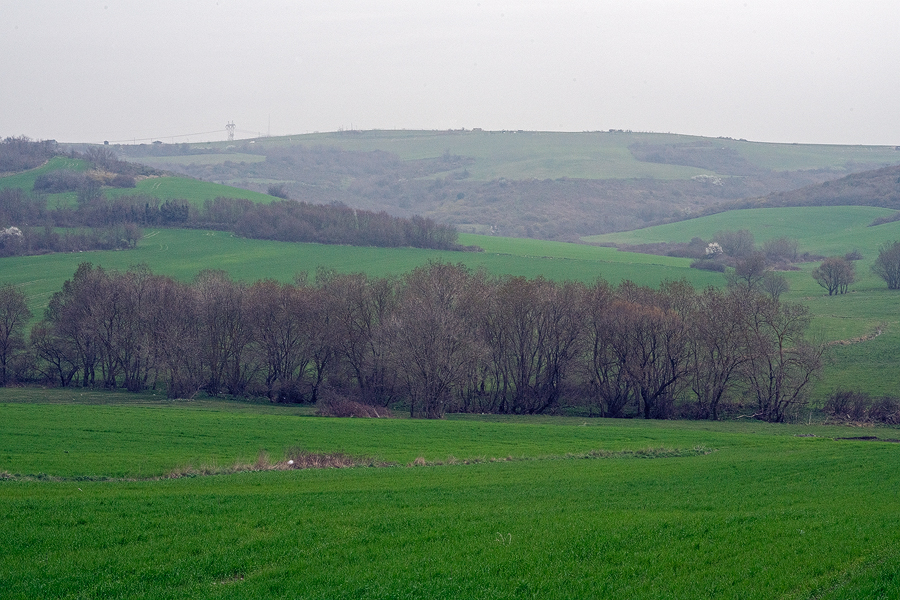
My first stop was in Thrace, the European part of Turkey that lies west of the Bosphorus. It is oddly fitting that the snowdrops that occur at this meeting point of continents are hybrids, of complex and as yet unresolved ancestry. Most of the southern half of Thrace has gone under the plough or has been built on, to house the ever expanding population of Istanbul (14.4 million currently). A chunk of the north-eastern corner is currently being turned into what will be the world’s biggest airport, when it is completed. From start-to-finish, this airport will be completed in roughly the same time it took Howard Davies’ commission into airport expansion in the UK to produce a recommendation. Turkey is a country impatient to claim its rightful place alongside other developed nations.
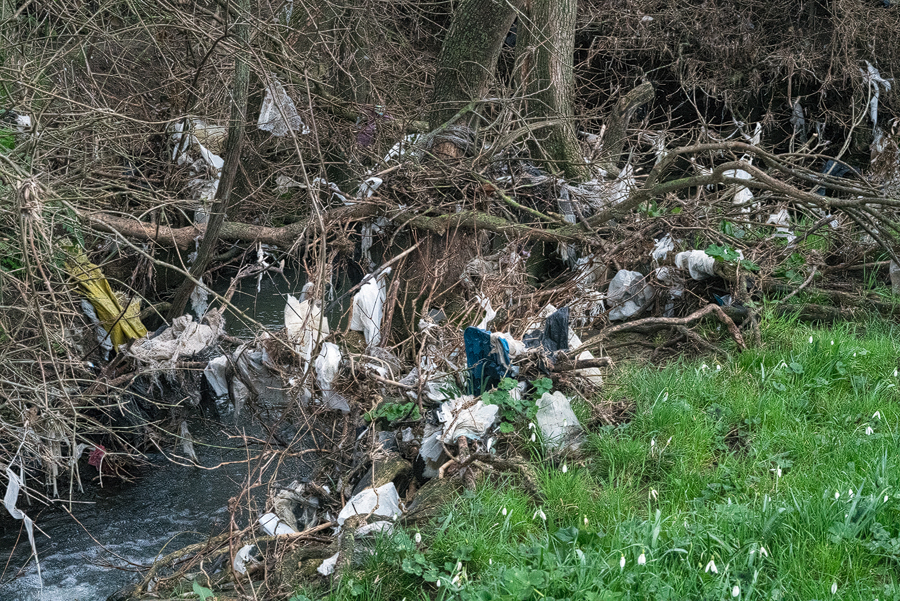
It’s a depressing landscape, the buildings ugly, many apparently half-finished and seemingly deposited at random in the landscape. The polluted streams are clogged with plastic waste, blown from the fly tipping sites at every layby.
Simon Kuznets was the first to notice that inequality tends to increase, then decrease as economies industrialise, peaking at some intermediate level of development. These so-called Kuznets Curves show up in all kinds of contexts, though their interpretation and even existence remains controversial. Environmental Kuznets Curves describe the alleged manner in which environmental protection and concern for the environment tend to be highest in countries at very low and very high stages of development and lowest in countries at intermediate stages. The poorest countries consume too little to do real environmental damage, goes the argument, whereas the wealthiest can afford to set aside meaningful sums for environmental mitigation, having wrought all the damage they pleased on the way ‘up’. Countries in the middle have neither an interest in environmental issues, nor the money to spare on them. Plastic bags provide a simple example. In the poorest countries, no-one would think of throwing one away and they are re-used until they fall to pieces. The richest countries tax and recycle plastic, spending fortunes cleaning up after consumers. Consumers in countries at intermediate levels of development can afford to throw away plastic bags but can’t yet afford to clear up the mess. Turkey, it seems to me, is right at the peak of one such curve.
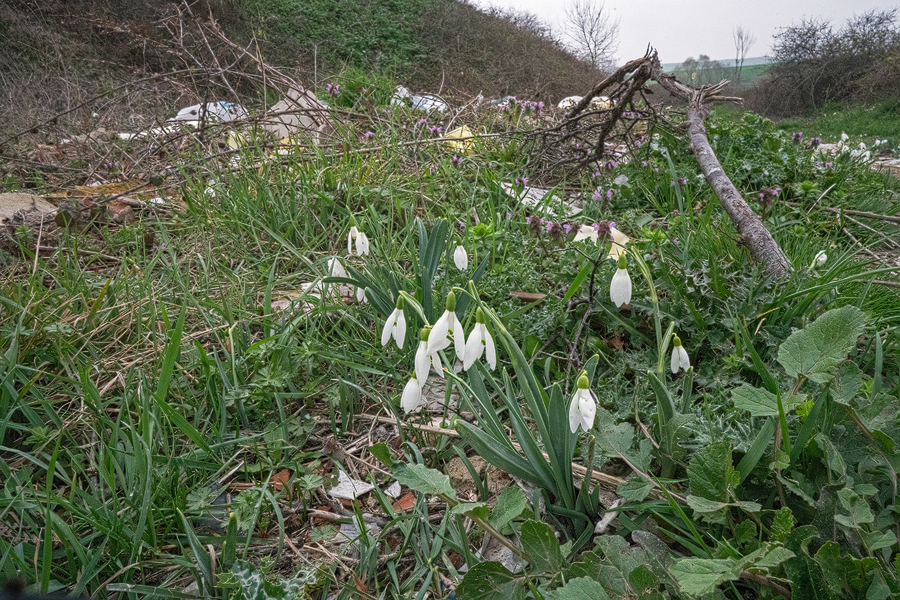
Anyway, I was standing beside a typical fly-tipping site, somewhere west of Istanbul, admiring the snowdrops thriving in its margins, when the shooting started. I don’t know what it is about snowdrop populations in Turkey, but they seem to attract trigger-happy youths, intent on playing with guns. This time it was automatic weapons fire but I couldn’t see the shooters and I spent an uncomfortable hour crawling around in the undergrowth, photographing snowdrops to the accompanying ‘rat-a-tat-tat’ of machine gun fire. This was really quite stressful and honestly I don’t know how soldiers do it all the time.
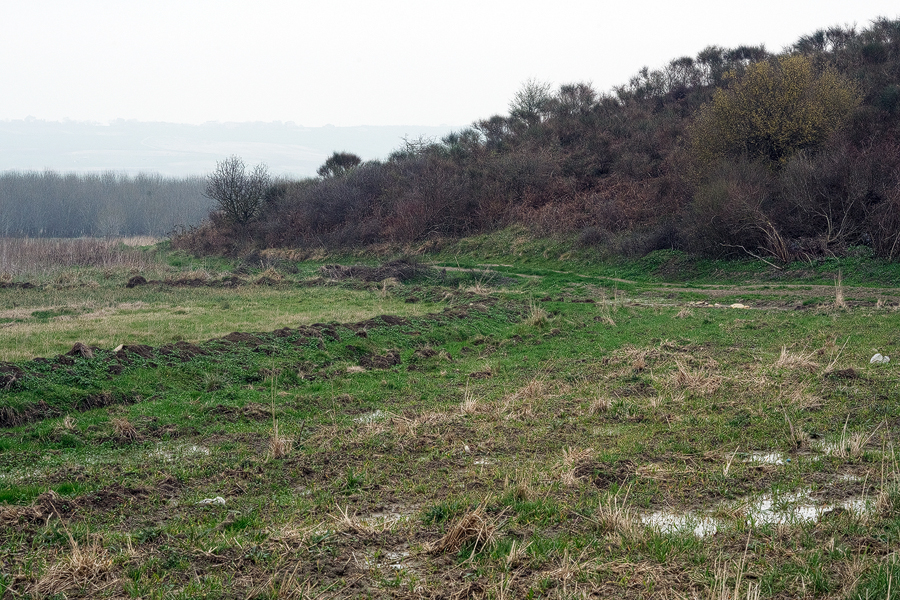
I retired, uninjured, to a hotel on the Asian side of the Bosphorus and, the following morning, drove down to the Black Sea coast at Riva. On the way I passed under the new motorway, which will connect Istanbul’s vast new airport with the rest of Turkey, via a third Bosphorus bridge, which is nearing completion. The motorway has carved a swathe nearly a kilometre wide and a hundred kilometres long through prime snowdrop habitat but, if the Turkish government is to be believed, this is a source of great national pride.
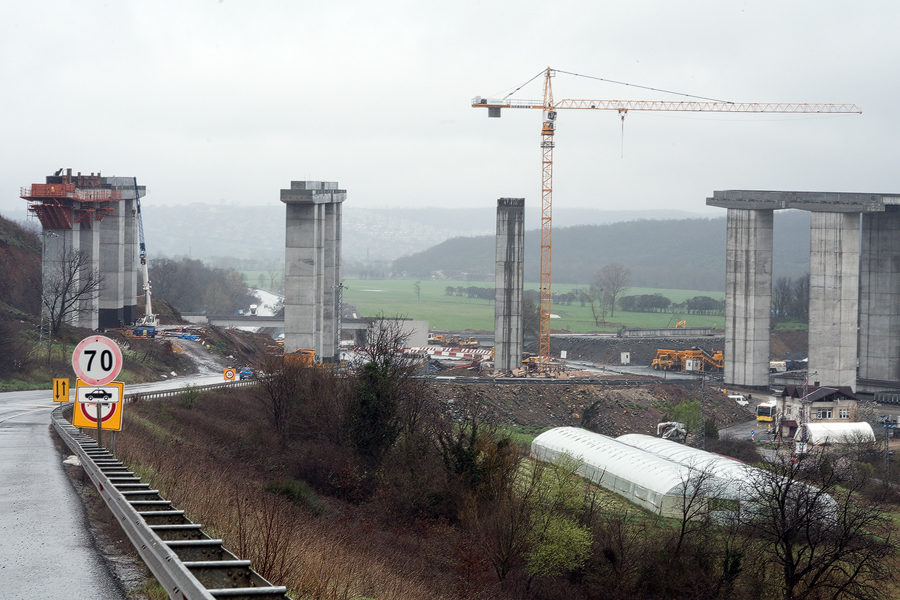
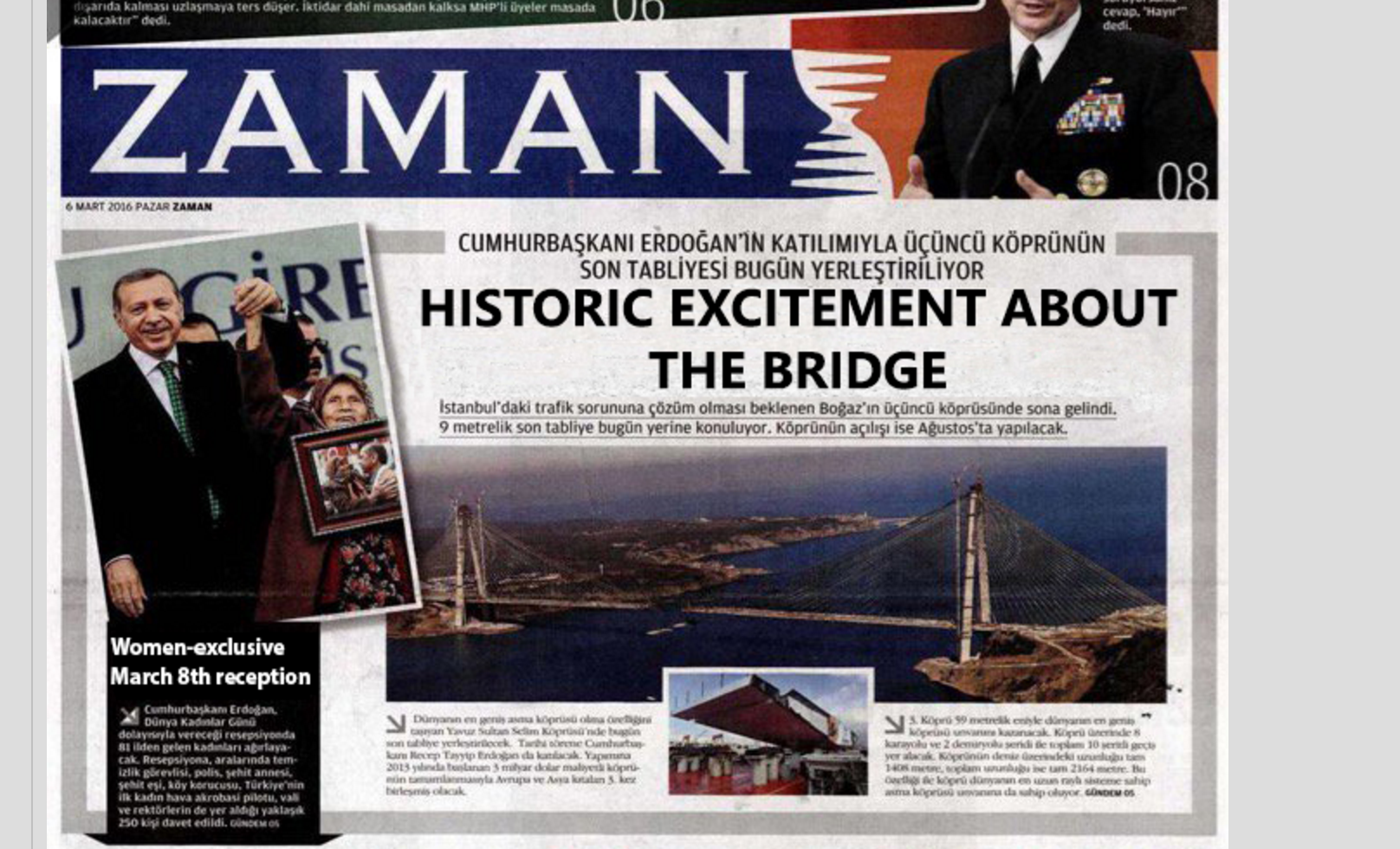
The same day, the BBC World Service carried a piece of investigative journalism by Navin Singh Kadkha, in which the fearless reporter ‘discovered’ that illegally-collected seeds of Himalayan plants are being sold in the UK. Western plant enthusiasts have collected and traded seeds in a small scale way for centuries. This entirely benign activity has been criminalised by the recent passage into international law of the Nagoya Protocol, a poisonous piece of protectionist legislation designed to assuage the consciences of former colonial powers and to enrich corrupt bureaucrats in developing countries.
‘The activity [seed collecting] harms the environment and deprives local people of benefits from the trade of plants…’ said ‘authorities’ in the Himalayas, according to the article, perhaps the silliest statement ever made by a bureaucrat outside a Monty Python sketch. Perhaps, before writing any more sententious, ill-informed rubbish, Mr Kadkha should travel to Turkey and see for himself the sort of damage to the environment that the ‘authorities’ can inflict, when they put their minds to it.
I drove east, through the territory of a snowdrop subspecies that Turkey proudly claims as an endemic (an organism that occurs only in one biogeographical region). Endemic species, as well as bridges, can be a source of national pride. If they were a source of international pride, we’d all be better off.
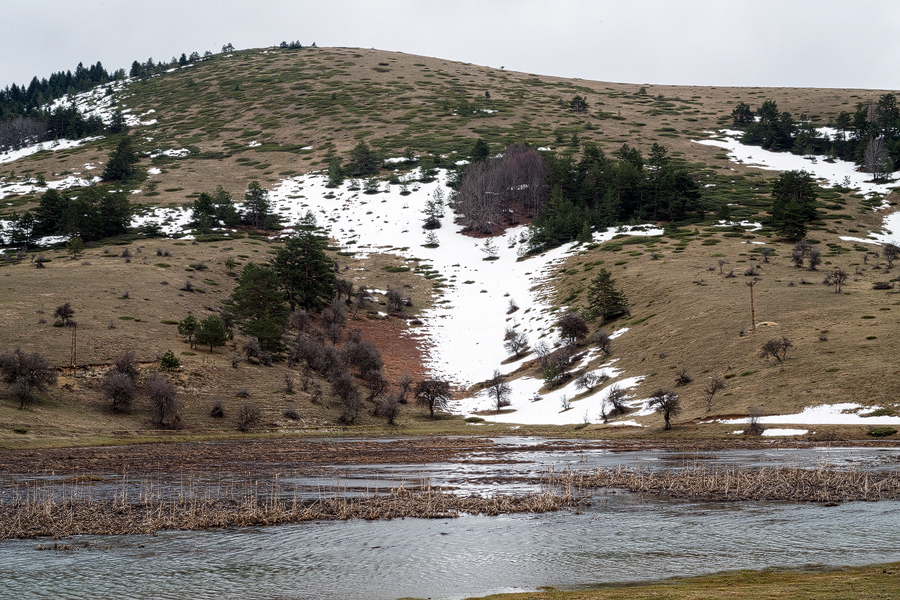
Lake Abant is a tiny jewel of a lake, set in glorious mountain scenery. Rather, it was a tiny jewel of a lake, until someone decided to give planning permission to half a dozen large hotels, which wanted to build on its shores. Now it’s a dumping ground for the effluent from the hotels, beyond which few tourists venture, fortunately. The surrounding mountains are still beautiful.
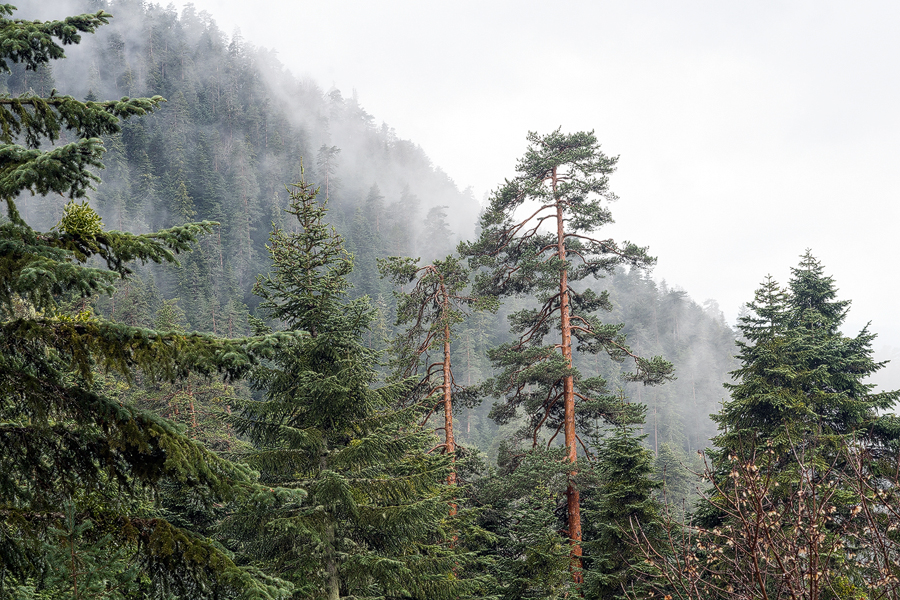
My hotel was some way down the mountain and appeared to be a destination for Turkish couples on romantic breaks. The lady behind the reception desk did a double take when I explained that I was travelling alone. It was fascinating to observe my fellow guests, covertly. In cosmopolitan Çannakale and Izmir, many of the locals drink alcohol in the bars and restaurants that line the seafront and western, often revealing, clothes are the norm. Away from the coast, however, alcohol consumption retreats to smoky, male-only drinking dens and hijabs are worn almost universally by women, despite the fact that headscarves are supposedly banned in Turkey in parliament, public buildings and universities[1]. The further east one goes, and the further inland, the more one sees women wearing the face-covering niqab with only a narrow slit, through which inscrutable pairs of eyes stare out onto a male-dominated world. Abant was the first place I saw a woman in a niqab taking a picture of herself and her disinterested, smart-phone-browsing partner, using a selfie stick. There is much black comedy in picturing the resulting album of identical holiday snaps.
‘Here’s me looking happy.’
‘Here’s me looking sad.’
‘Here’s me burning with impotent rage at everyday Turkish misogyny.’
But there’s nothing funny, really, about the treatment of women as chattels, for that is what they are, in large sections of this, by turns, alluring, beguiling, confusing, infuriating and, sometimes, downright depressing society. Later, in a Trabzon hotel, I saw one, clearly affluent, young man, casually dressed and with an elaborate perm stride confidently through the lobby. Following him meekly were two women, veiled behind niqabs, about as free as a pair of goats.
I think it is interesting to compare religious and scientific explanations for the existence of the veil.
We have sent down clothing to cover your shame.
Male sexual proprietariness is likely to evolve in any animal species with internal fertilization and paternal care…we will argue that diverse cultural practices can be understood as manifestations of a cross-culturally ubiquitous male concern with the monopolization of female sexuality and reproductive capacity, reflecting a history of selection for a male sexual psychology effective in deterring rivals and in limiting female sexual and reproductive autonomy.
In other words, Islam regards our bodies as sources of potential shame and uses that literal fig leaf as an excuse for draping women in suffocating black tents. Although the Quranic verse quoted applies to men and women equally, patriarchal Islamic societies have apparently concluded that naked women have more to be ashamed of than naked men. The scientists point out, unfortunately in ponderous language, that, in any species in which paternity is uncertain and males invest heavily in their offspring, there will be selection for male attempts to sequester and control female sexual services. That’s what the niqab is really for. Those liberals and feminists who support a woman’s ‘right’ to wear the burqua or niqab (is a choice dictated by cultural and peer pressure a real choice?) would do well to read – and ideally understand, but perhaps that’s asking too much – Wilson & Daly’s classic paper ‘The Man Who Mistook His Wife For a Chattel’, before advocating the sartorial equivalent of chastity belts again.
While I hunted for snowdrops around Lake Abant, Turkey’s president, Recep Tayyip Erdoğan, ordered the seizure of a newspaper that had been critical of his government. The first edition printed after it was taken over featured the new Bosphorus bridge which, it is rumoured, might bear Erdoğan’s name.
I drove back to Istanbul, caught a few hours sleep, and flew to Samsun, on the Black Sea coast, half way between Turkey’s north-west and north-east corners. From Samsun I drove south into the mountains, heading for Akdağ, where a rare snowdrop species clings to existence on a few, north-facing cliffs.
Illusory superiority is one of the most pernicious biases to which we humans are susceptible. A large majority of British men famously rate themselves as better-than-average drivers. It is not, quite, statistically impossible that they are all right (some really, really bad drivers could drag down the average) but, let’s be honest, most men are deluded about a lot of things, their driving skills included.
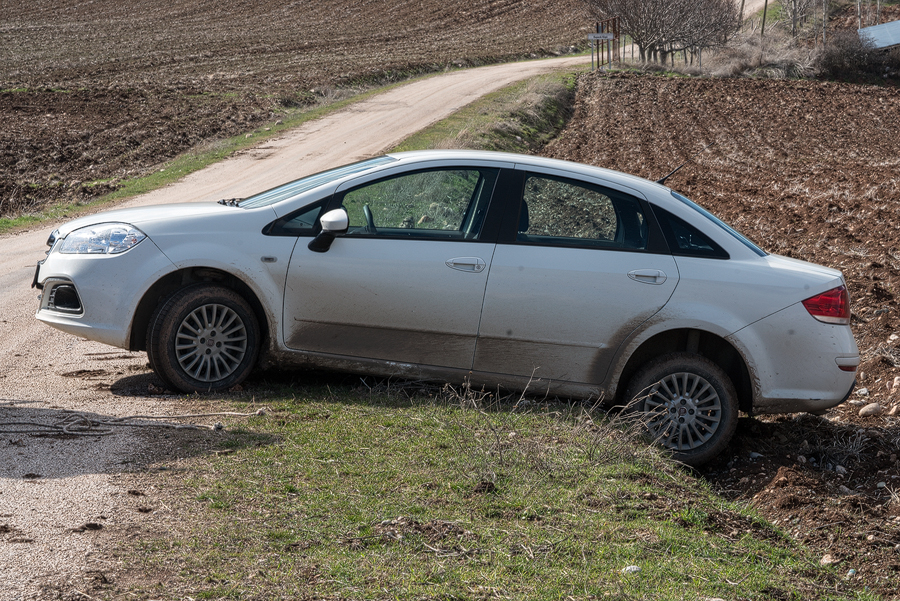
I am often delusional but, oddly enough, seem to be totally realistic about my driving. Frankly, it’s a miracle they let me on the roads, behind a wheel. Driving along a rural track, in pursuit of the aforementioned snowdrop, my mind was not fully engaged on the task at hand while reversing. The back wheels of my rented car slipped into a ditch and none of the forward gears subsequently had any effect, save causing blue smoke to emerge from under the bonnet.
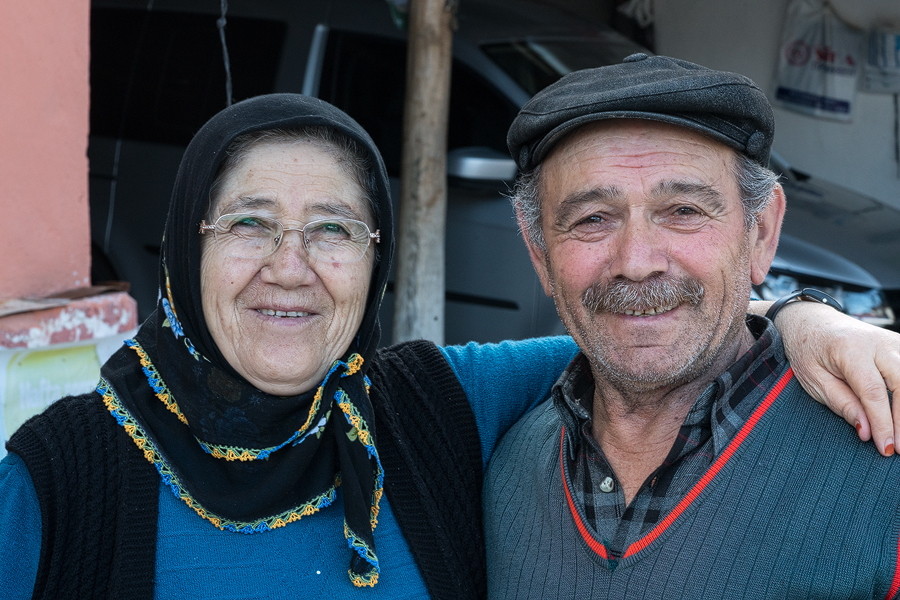
Had I been in the UK, I suppose I’d have called the AA and waited through the interminable warnings about making sure I was parked in a safe place before using my mobile phone (as though I’d be calling the bloody AA, if I was parked in a safe place). But I was in deepest, rural Turkey and so I decided to walk to the nearest village and seek help. The village was only about a mile away; the sun was shining and the scenery was breath-taking, so I was pretty happy.
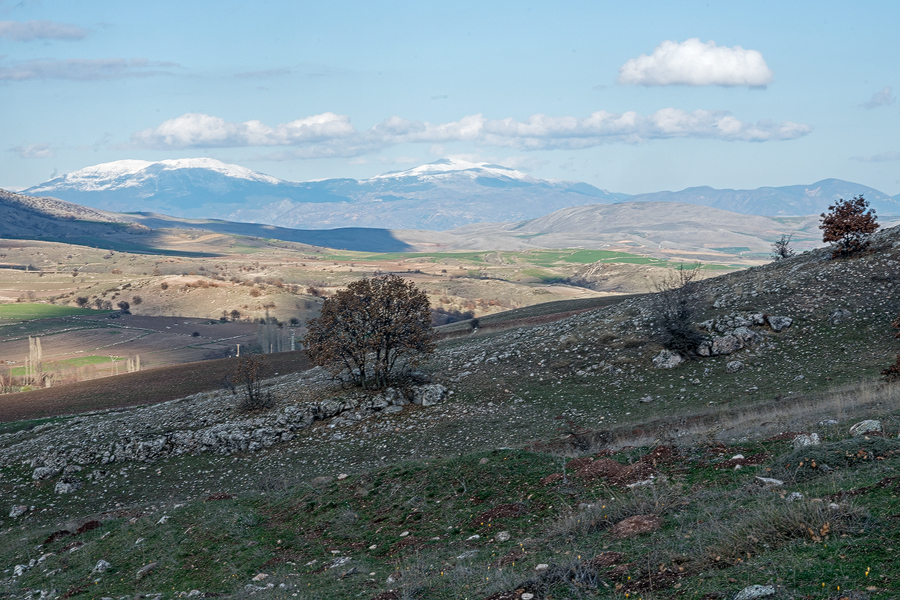
There was no-one about, when I arrived in the village, except an elderly couple, who smiled so broadly, I worried that their wrinkled faces would crack. Soon I found the village shop, but it appeared to be closed. The gate next door was open and a man was standing in the gateway. I approached him and extended my hand. We shook hands firmly and I said ‘Inglis’. ‘Inglis?’ he said, incredulously, and pumped my hand, as though we were old friends. I pointed to my chest, then mimed driving a car, and pointed down the road. He understood immediately. ‘Tractor?’ He said, uttering the only mutually intelligible word of the afternoon.
My rescuer shouted something to his wife, beckoned me to join him in the cab of his tractor and we set off down the road. The tractor was well-equipped with ropes and chains and, in short order, my car was back on the road.
I was immediately seized by the guilt of a relatively rich Westerner who has been helped, far beyond the call of duty, by an incredibly kind stranger. Should I offer money for the service freely rendered or would that be patronising and misinterpreted? Before I could come to any conclusion, my new friend invited me back to his house for tea. ‘Çay, çay’, he said, and beckoned towards the village.
I followed my rescuer back to his house, took off my shoes and entered his home. His wife greeted me warmly, extending her hand (which is pretty unusual in Turkey, in my limited experience), while I dithered, not knowing how to behave. I put my hand in hers and she raised it to her lips and kissed it, then placed both her hands on her chest in a universal gesture of greeting.
I was ushered into the front room of the house and much fuss was made of me. A cloth was laid on the floor; a table laid; a kettle placed on the hob. My hosts spoke no English; I speak no Turkish. Fortunately, the television was on. Food started to appear on the table. Scrambled eggs with slivers of sausage; a plate of tomatoes and chillies; honey which, my resucer proudly mimed, was from his own hives; thick, black, tart pomegranate molasses; olives and walnuts from the garden; börek – a spinach and cheese pie, that is a staple everywhere in Turkey.
Eventually I made as graceful an exit as possible. I had to be elsewhere I said apologetically, pointing to an imaginary watch on my wrist. We parted having, I hope, given one another an excuse to reflect on our respective cultures. Ordinary people, across huge cultural divides, can find common ground in their shared humanity, whenever our poisonous political leaders can be excluded.
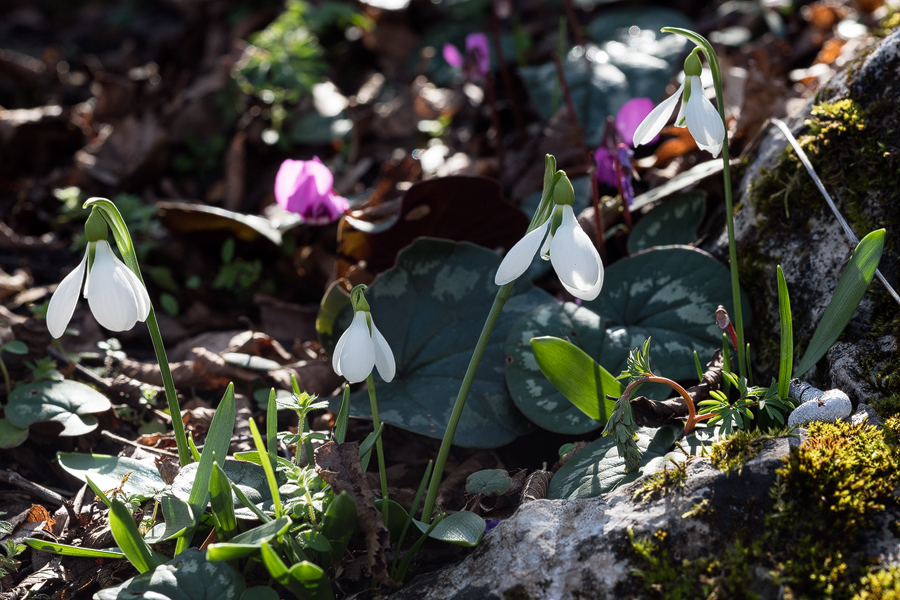
Rare snowdrop – Galanthus fosteri – duly found, I flew back to Istanbul and then down to Izmir, on Turkey’s Mediterranean west coast. From there I drove up to Çannakale, which sits across the Dardanelles from the Gallipoli peninsula, site of one of the most futile sacrifices of human life in our species’ entire, bloody history and witness to what was decidedly not Winston Churchill’s finest hour.
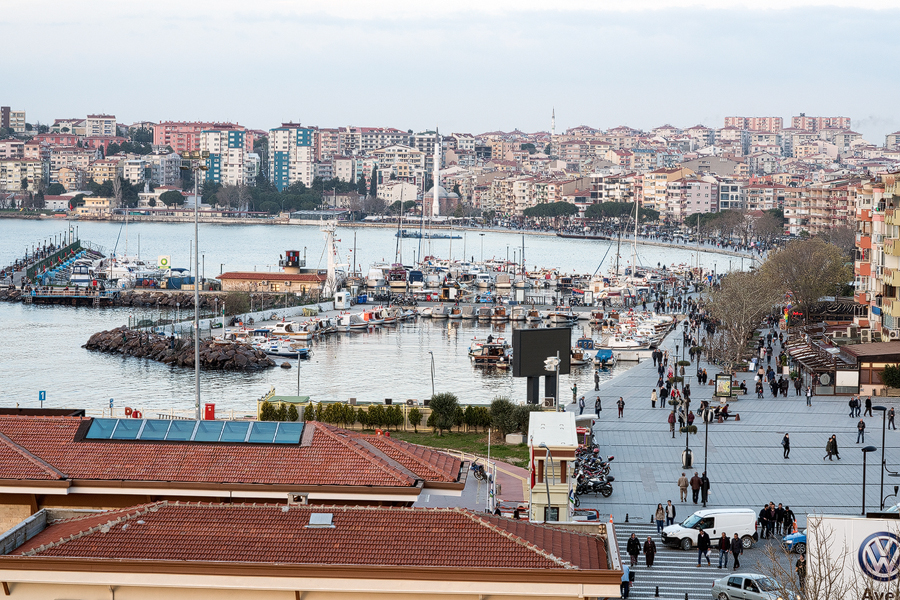
Last year I invested a lot of time and energy in finding perhaps the rarest and most enigmatic (because its evolutionary relationships are difficult to explain) of all snowdrop species, Galanthus trojanus, named for the nearby ancient city. I’d succeeded but had arrived too late to see all but the very last flower. This year I had deliberately come a week earlier, but it’s a mild spring and I was still too late. As hard as I searched, I couldn’t find a single flowering plant.
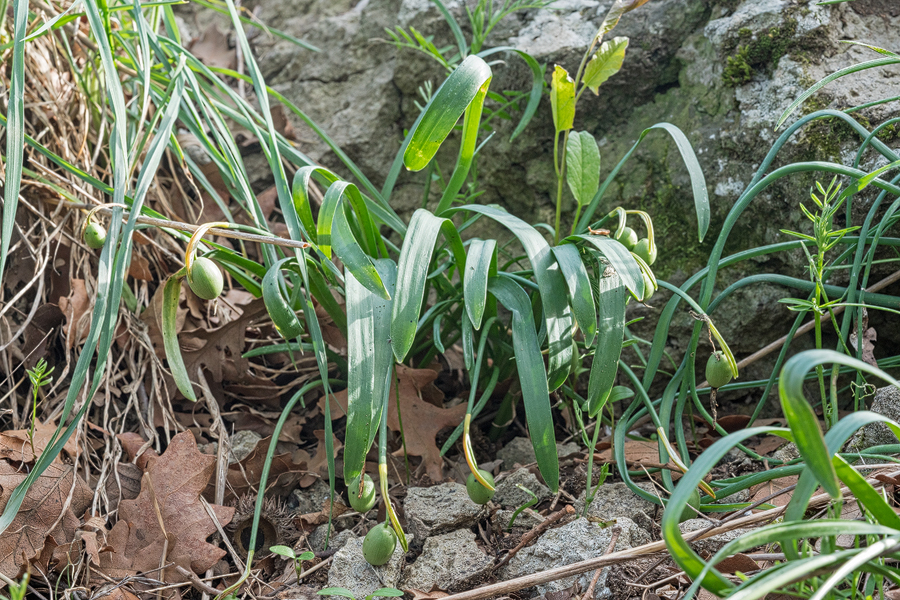
Redundancy is the reason that modern airplanes don’t regularly fall out of the skies, despite their reliance on fallible computers. Redundancy is the reason our genetic codes are translated into proteins with very few mistakes, despite messy biology. I’d built as much redundancy as I possibly could into the snowdropathon but Galanthus trojanus occurs only in a very few sites over a narrow altitudinal range and I had only one shot at seeing it in flower. Unfortunately, I blew it.
If I’ve given the impression that you are reading a blog about snowdrops, I can only apologise for the confusion. It’s really about my narcissistic attempt to learn how to live gracefully with failure. Self-help books are no use, partly because they’re usually written by charlatans and aimed at credulous fools but mainly because they peddle the ridiculous myth that our brief lives are about something.
A book is ‘about’ the theme its author had in mind. But we have no author, save natural selection, which has no mind. To believe that you are ‘about’ anything at all is to commit the Puddle Fallacy, my name for a parable told by the late Douglas Adams[3]. He imagined a sentient puddle waking up and finding that the hollow in which it sloshed about suited it very well. So well, in fact, that it was tempting to suspect that the hollow had been created with the puddle’s future occupancy in mind. This kept the puddle happy for quite a while. But then the sun came up and the puddle started to evaporate. As it shrank, it noticed that the shape of the hollow that contained it seemed to remain exactly right for its current contours. In fact, no matter how fiercely the sun shone, nor how fast the puddle evaporated, it remained convinced that it was at the centre of a world that had been created for its benefit. Eventually the puddle disappeared.
Darwin’s ‘strange inversion of reasoning’[4] exposed the puddle fallacy for what it is. The world wasn’t made to fit us, as seemed self-evident to almost everyone before 1859. We were ‘made’ to fit the world and, because the world is constantly changing, we fit it only imperfectly at any moment in time.
We are, all of us, destined to lose the ultimate race, against dying. Just as a satellite above the earth is in constant free fall, in a gradually decaying orbit, destined to end in a tiny spark of light and fire, so each of us is constantly dying, kept temporarily alive only by the small but powerful anti-entropy devices known as bodies. How, then, how to spend one’s remaining time?
One often hears the facile trope that one should live as though each day were one’s last. We are exhorted to ‘seize the day’, often by accountancy trainees, embarking on a lifetime of servitude. Anyone following this silly advice will certainly die a lot sooner than they might have done and experience less pleasure, in total, than the person who calculates that he or she probably won’t die imminently. Unless you are in your nineties and have recently had triple bypass surgery, the chances are excellent that you won’t die tomorrow.
It makes sense to live like there’s no tomorrow only when that’s literally true. But it is given to very few, other than condemned criminals and determined suicides, to know the hour and date of their deaths. The trick, for a secular materialist, is to try to maximise the fun, not the life expectancy. But there are too many variables to control and so most of us get it wrong.
What Horace seems to have meant by ‘carpe diem’ is actually that one should not superstitiously trust that tomorrow will take care of itself, or rely on fate or the gods. One should, instead, plan ahead, and try to bend one’s tomorrows to one’s own will. That’s easy to say, Horace, but bloody hard to put into practice.
I spent 15 years following what might be called the defined-benefit-pension-plan program for seizing the day. This involves working as hard as possible, in the best-paid form of employment one can find, with the intention of retiring with the means to enjoy one’s remaining days free from financial stress. It works for some people but it left me, literally, a gibbering wreck. After that failure, I tried running a small business on the premise that, if I really liked the product, surely everyone else would too? This left everyone around me, especially those with a financial interest in the business, gibbering wrecks.
So I embarked on the snowdropathon, an endeavour as pointless as any I could conceive, that could nevertheless hold my attention. Neither failure nor success would have any consequences, for anyone, except me. The original goal was to see every snowdrop species in flower in a single autumn and spring season. As objectives go, it’s not up there with sending an armada across the ocean to sack the impregnable city of Troy but it was what I wanted to do. I had tried to seize the day, in Horace’s sense, by planning everything as meticulously as possible. Kneeling here in a fragment of woodland, not far from that ancient, ruined city, I realised that all the planning had been for naught. I’d failed, again.
Perhaps one becomes inured to the psychological pain that losing brings, after a lifetime of repeated failures. ‘Show me a good loser, and I’ll show you a loser’, as the cruel but accurate American aphorism goes. At any rate, I couldn’t bring myself to feel terribly bad about failing. I would move the goalposts and set a slightly less ambitious target of seeing all 22 species, in flower or not.
* * * * * * *
When you board an internal flight in Turkey, about a quarter of one’s fellow passengers look like the West’s stereotype of a suicide bomber. Given that few Turkish domestic flights blow up in mid-air, this immediately suggests that there is a problem with the stereotype. I rather suspect that the same might be true of other stereotypes. When you board a flight from Turkey to Armenia, everyone, including the pilot, looks like a suicide bomber. Not for the faint-hearted.
I arrived in Yerevan, without incident (although everyone else on the aeroplane took off their seatbelts and started walking around as soon as it touched down, ignoring all the entreaties from the cabin crew to remain seated), at one o’clock in the morning. The man at Sixt was surprised to see me but duly led me to a small, underpowered Honda and programmed the GPS to take me to my hotel. Twenty minutes later, the GPS announced that I had arrived at my destination, outside an establishment that was clearly a brothel, masquerading as a ‘massage club’. A couple of bouncers were loitering about and, trying not to look like a punter, I asked for directions. They cheerfully pointed up the street to an enormous neon sign, clearly indicating the name of the hotel I’d booked.
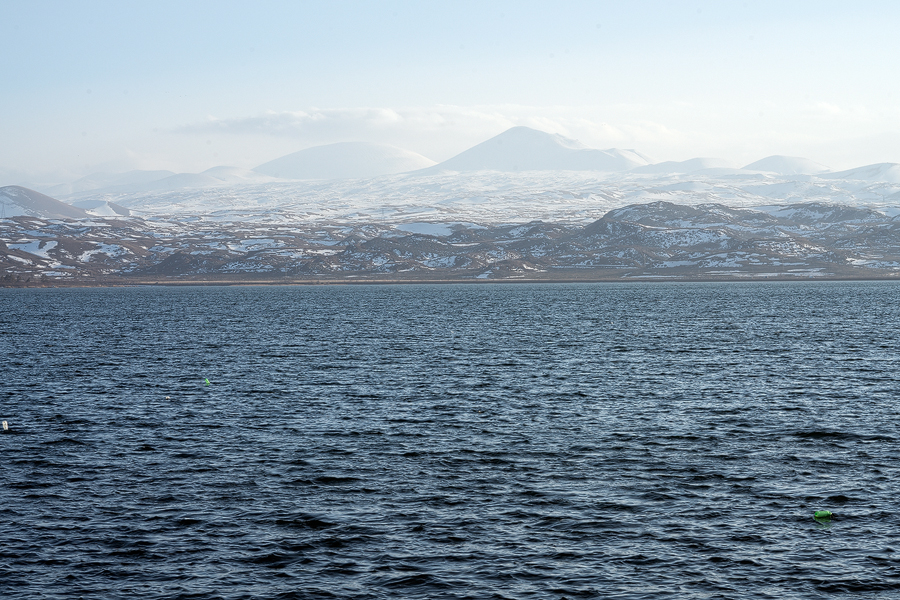
I had a single day in which to find two snowdrop species, both of which grow in the north-east of the country and, to my amazement, I found them both without much difficulty, thanks to some accurate directions from a kind friend.
Atlas Global, the airline that took me from Istanbul to Yerevan, cancelled my return flight without explanation or apology, stranding me in Armenia. I couldn’t find any way out of the country, except through Russia, so I bought a new ticket to London, via Moscow. I wondered why there weren’t more flights between Yerevan and Istanbul, until I started to notice billboards reminding an uncaring world about the 1915 genocide of Armenians by the dying Ottoman Empire.
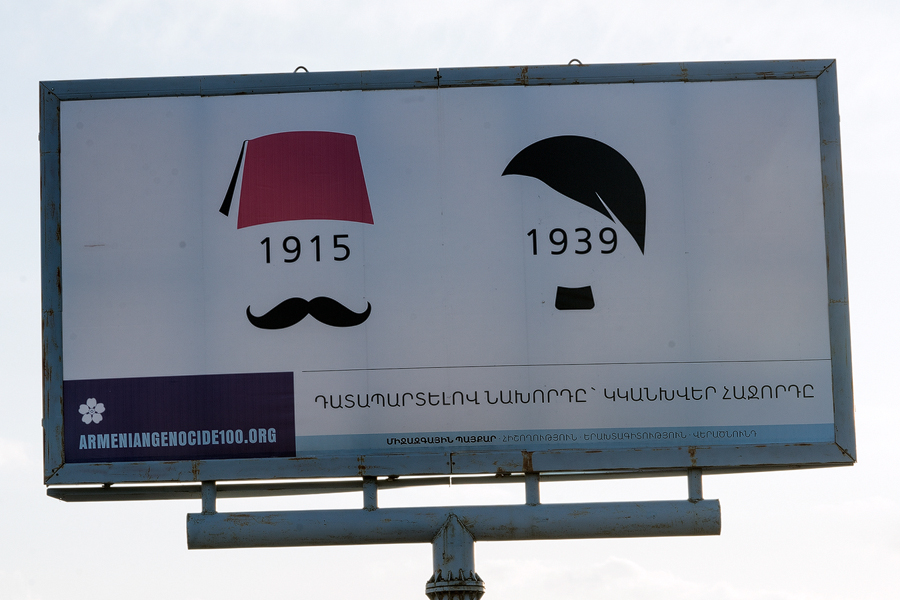
A colleague of mine once wrote a report on TUI, the package tour operator. One of the problems the company has to deal with is how to accommodate tourists from a wide range of countries in the same hotel, without provoking open warfare. The solution is a matrix, identifying particular animosities, so that nationalities can be assigned to corridors with the least possible risk of violence. It turns out, unsurprisingly, that the British hate the French and the Germans, and vice-versa. Virtually everyone likes the Dutch. While some nationalities, though not the Lithuanians, tolerate Russians, they despise everyone else. Belgians are held in polite contempt by all and sundry, and so can be used as buffers between potentially rival factions of volatile Italians and Spaniards.
It’s the same in international relations. The reason I have (perfectly legally) two simultaneously valid British passports is so that I can avoid embarrassing situations at the borders of countries that I want to visit but which despise one another. If you’ve been to Armenia, you can’t get a visa for Azerbaijan. If you have an Israeli stamp in your passport, forget about visiting Iran. Russia demands a list of every country you’ve visited, ever, before granting you a visa. The USA now treats anyone who has visited Iran, Sudan or Iraq, unless to exploit the mineral resources of those countries, as an enemy of the state. Greece and Turkey loathe one another, though neither currently operate an exclusion policy on people who have visited the other’s territory. Just don’t mention Cyprus.
Back in London, I went to my son’s birthday party, in a wood on the outskirts of London. A large group of boys and girls were divided into red and blue teams, armed with alarming realistic laser rifles and instructed to shoot one another in games with names like ‘annihilation’ and ‘death wish’. They loved it.
‘Daddy,’ my not obviously atavistic eleven-year-old daughter told me between games, ‘I shot 20 people that time and I was the last on my team to die!’
‘That’s lovely darling. Well done!’
If I’d given her a live rat at that moment, I expect she’d have bitten its head off.
A former colleague, who was pregnant with her fourth child at the time, was sensibly realistic about her chances of getting parenting right. ‘I’ve made a mental note not to fuck this one up,’ she told me.
After steak and chips, I went to Heathrow and took an overnight flight back to Turkey, which landed at half past four the following morning. I checked in for my connecting domestic flight, to Trabzon and went to the gate to doze. About an hour before it was due to depart, the flight was abruptly cancelled. Reasonably enough there had been no announcement in English so, by the time I’d figured out what had happened and found the Turkish Airlines ticket office, the following flight, scheduled to leave later that morning, was full. I was on the verge of a major sense-of-humour-failure when the lady behind the counter suggested that I fly instead to Erzurum, a five hour drive from Trabzon and this I agreed to do.
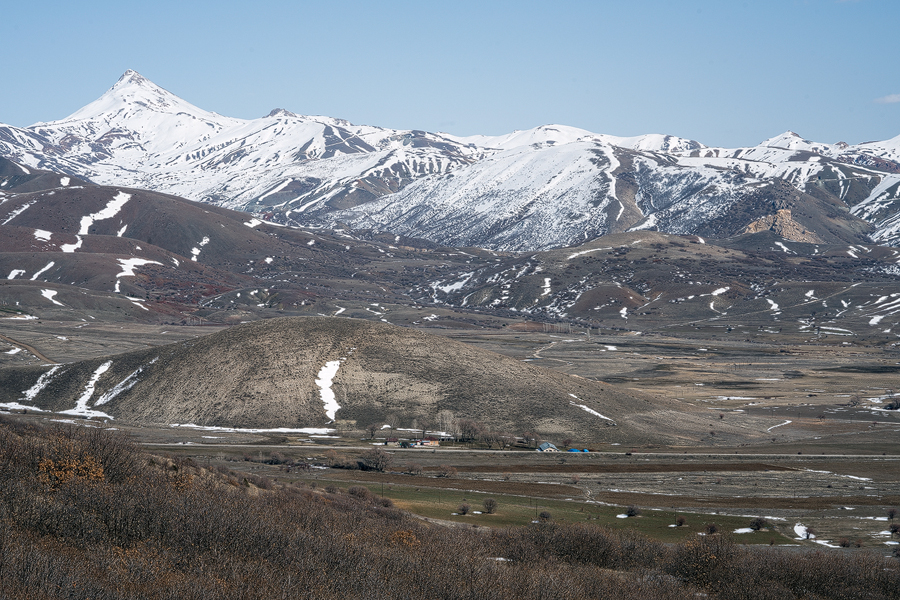
At Erzurum airport I had to suppress a fit of the giggles when the fully veiled lady next to me at the conveyor belt caught a glimpse of her family through the sliding doors to the arrivals hall. She started waving madly but, because she was one of half-a-dozen identically clad women and only her eyes were visible, there was no reaction. Can Turks recognise their own niqab-clad female, I wondered, in the way than herring gulls can apparently pick out their chicks in a vast seabird colony full of squawking, clamouring nestlings? Do people ever go home with the wrong one, accidentally, as sometimes happens with baggage? Perhaps there should be signs up, warning that ‘Many women look similar. Please make sure you have the correct one, before leaving the baggage hall.’
The sun was shining out of a vast blue sky and the high mountains north of Erzurum were still covered with deep snow. The road, blissfully empty of traffic, wound over a couple of high passes and the landscapes that unfolded as I drove were too lovely to allow my bad mood to persist for long.
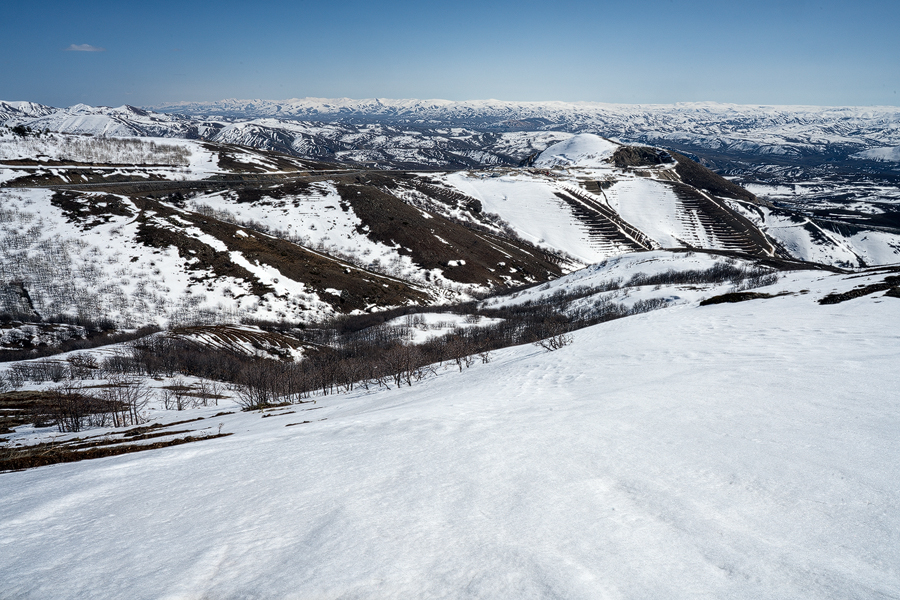
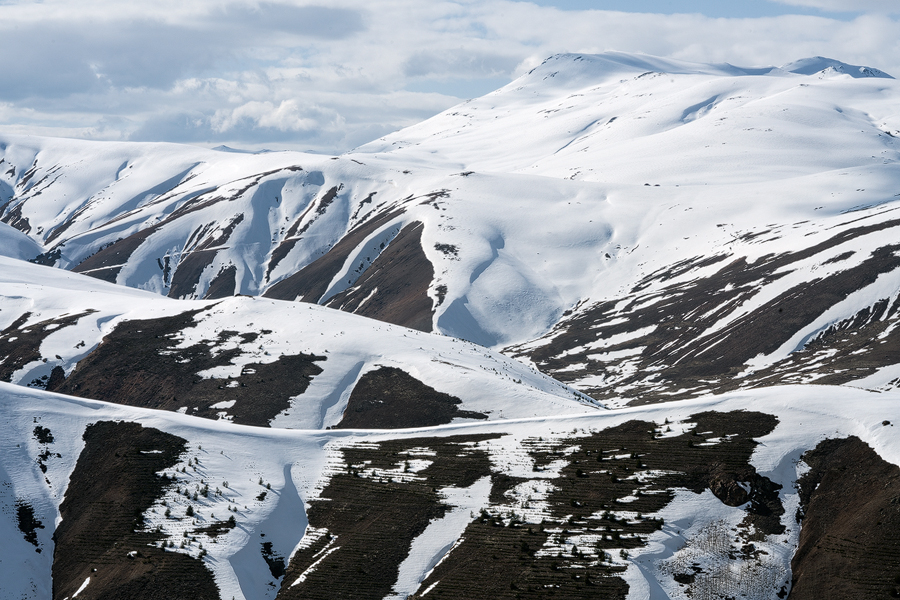
I found another rare snowdrop species, one of those that is restricted to a few valleys and a very narrow geographical range and ended the day in the Trabzon hotel that I’d originally booked, pretty pleased to have rescued the day.
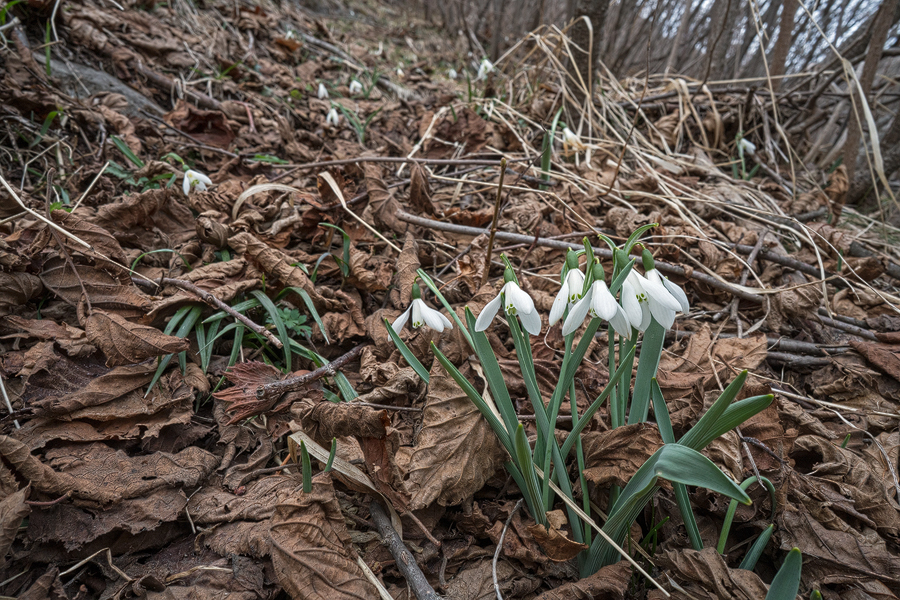
Checking the news, I saw that a group claiming to represent a Kurdish independence movement had exploded a bomb in Ankara’s Guven Park, killing 37 people. President Erdoğan quickly expanded the definition of terrorist to cover pretty much anyone he doesn’t like, or anyone who publicy support anyone he doesn’t like, which very much includes anyone who isn’t with the Turkish nationalist program. On a strict reading of his proposed new definition, I could be classed as a terrorist, for writing this blog post[5].
Unfortunately for Erdoğan, Turkey, like almost all nation states, is a fiction, held together by a carefully constructed web of nationalist rhetoric and blatant lies. Many Kurds, large and sometimes oppressed minorities in all the countries (Turkey, Iran, Iraq, Syria) into which historical Kurdistan was carved in the 20th Century by the imperial powers, feel more loyalty to their ethnic group than to the smoke-and-mirrors nations in which they currently reside.
Whether or not the Ankara bombing was an act of terrorism, the 37 dead people and their friends and relatives were certainly not the guilty parties and their murder makes Kurdish independence less, not more likely. My wife was worried about me but I reassured her that I was 800 kilometres from Ankara, more than twice the distance from Paris to London, and that I felt considerably safer in Trabzon than I do when I am in the capitals of the UK or France.
The weather deteriorated further over the next couple of days, and I was unable to get up into the mountains. It proved impossible to return to Erzurum, over the high passes that I had crossed in glorious weather a few days earlier. So I arranged to abandon my hired car at Trabzon airport and caught a flight home, for once happy to be leaving a country that is stuffed full of natural and human beauty but in which I will never truly feel at home.
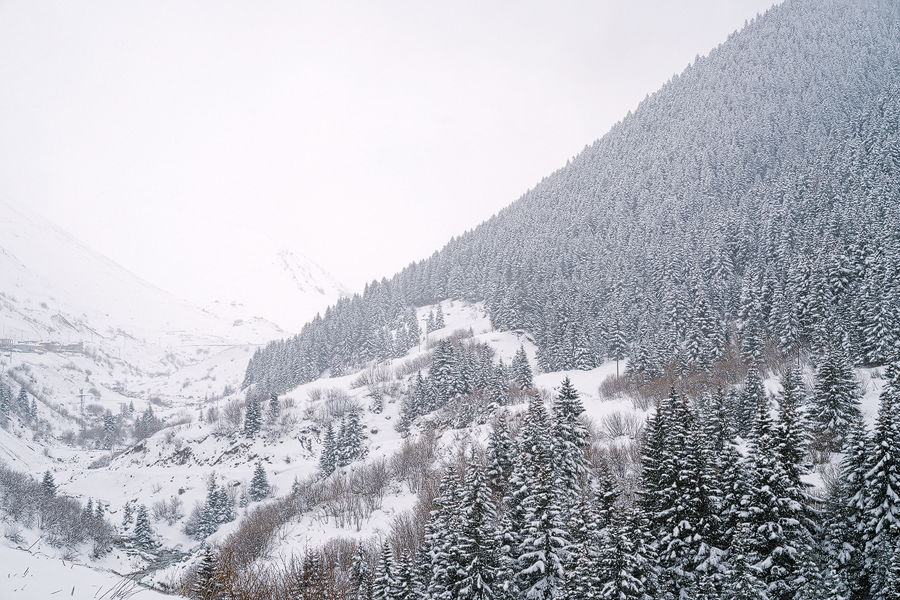
[1] http://www.meforum.org/2777/ban-the-burqa
[2] http://psych.mcmaster.ca/psyweb/3f3e/reading10.pdf
[3] https://www.youtube.com/watch?v=v8mJr4c66bs
[4] http://www.pnas.org/content/106/Supplement_1/10061.full
[5] http://www.independent.co.uk/news/world/middle-east/turkey-s-president-erdogan-wants-definition-of-terrorist-to-include-journalists-as-three-academics-a6933881.html
